Books
Antiquity. Arts + Culture. Entertainment. Philosophy + Religion. And more!
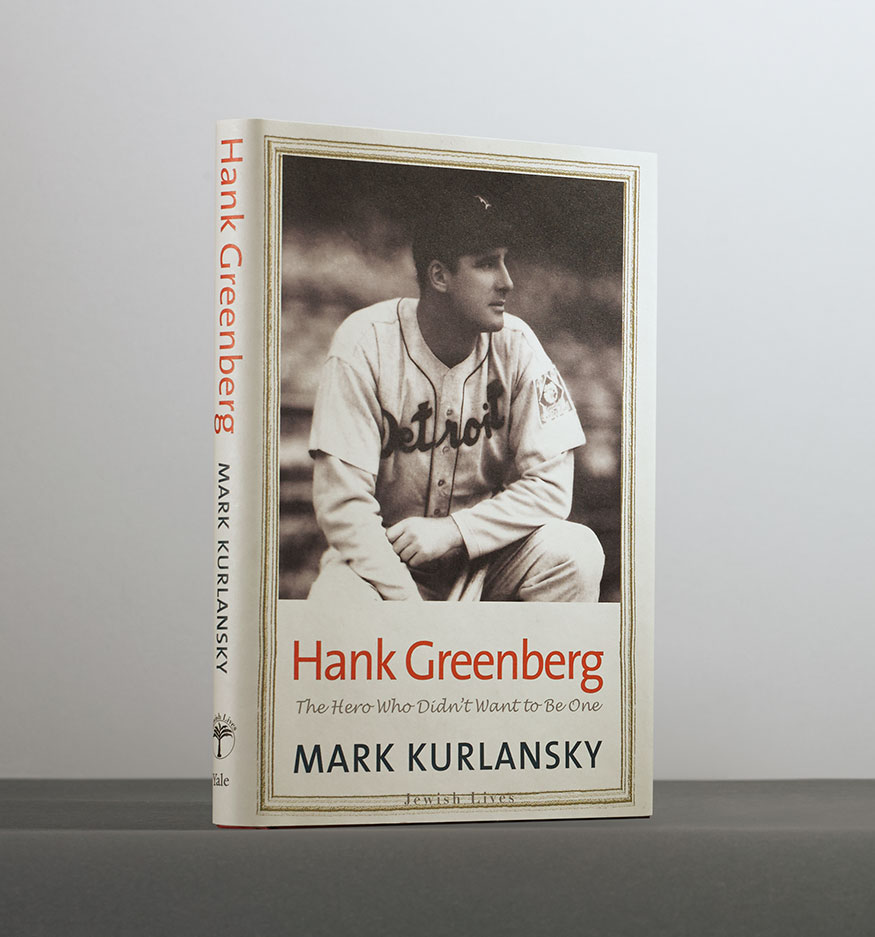
By Mark Kurlansky
Published March 29, 2011
192 pages
“A graceful appreciation” —USA Today
One of the reasons baseball fans so love the sport is that it involves certain physical acts of beauty. And one of the most beautiful sights in the history of baseball was Hank Greenberg's swing. His calmly poised body seemed to have some special set of springs with a trigger release that snapped his arms and swept the bat through the air with the clean speed and strength of a propeller. But what is even more extraordinary than his grace and his power is that in Detroit of 1934, his swing—or its absence—became entwined with American Jewish history. Though Hank Greenberg was one of the first players to challenge Babe Ruth's single-season record of sixty home runs, it was the game Greenberg did not play for which he is best remembered. With his decision to sit out a 1934 game between his Tigers and the New York Yankees because it fell on Yom Kippur, Hank Greenberg became a hero to Jews throughout America. Yet, as Kurlansky writes, he was the quintessential secular Jew, and to celebrate him for his loyalty to religious observance is to ignore who this man was.
In Hank Greenberg Mark Kurlansky explores the truth behind the slugger's legend: his Bronx boyhood, his spectacular discipline as an aspiring ballplayer, the complexity of his decision not to play on Yom Kippur, and the cultural context of virulent anti-Semitism in which his career played out.
What Kurlansky discovers is a man of immense dignity and restraint with a passion for sport who became a great reader—a man, too, who was an inspiration to the young Jackie Robinson, who said, “Class tells. It sticks out all over Mr. Greenberg.”
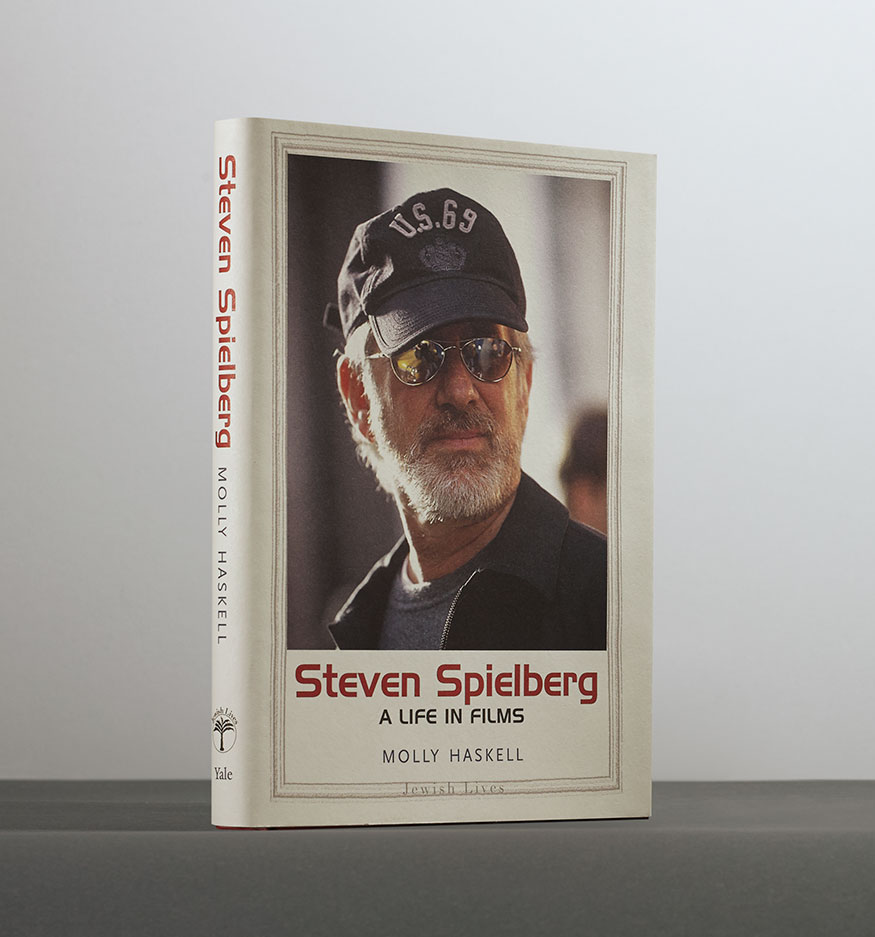
By Molly Haskell
Published January 3, 2017
248 pages
“Uncommonly absorbing” —The New Republic
A film-centric portrait of the extraordinarily gifted movie director whose decades-long influence on American popular culture is unprecedented
“Everything about me is in my films,” Steven Spielberg has said. Taking this as a key to understanding the hugely successful moviemaker, Molly Haskell explores the full range of Spielberg’s works for the light they shine upon the man himself. Through such powerhouse hits as Close Encounters of the Third Kind, E.T., Jurassic Park, and Indiana Jones, to lesser-known masterworks like A.I. and Empire of the Sun, to the haunting Schindler’s List, Haskell shows how Spielberg’s uniquely evocative filmmaking and story-telling reveal the many ways in which his life, work, and times are entwined.
Organizing chapters around specific films, the distinguished critic discusses how Spielberg’s childhood in non-Jewish suburbs, his parents’ traumatic divorce, his return to Judaism upon his son’s birth, and other events echo in his work. She offers a brilliant portrait of the extraordinary director—a fearful boy living through his imagination who grew into a man whose openness, generosity of spirit, and creativity have enchanted audiences for more than 40 years.

By Neal Gabler
Published April 26, 2016
296 pages
“Fascinating and insightful” —The Wall Street Journal
An enthralling appreciation of the monumentally gifted popular artist and cultural icon who challenged Hollywood’s standards of beauty and glamour
Barbra Streisand has been called the “most successful...talented performer of her generation” by Vanity Fair, and her voice, said pianist Glenn Gould, is “one of the natural wonders of the age.” Streisand scaled the heights of entertainment—from a popular vocalist to a first-rank Broadway star in Funny Girl to an Oscar-winning actress to a producer and director. But she has also become a cultural icon who has transcended show business. To achieve her success, Brooklyn-born Streisand had to overcome tremendous odds, not the least of which was her Jewishness. Dismissed, insulted, even reviled when she embarked on a show business career for acting too Jewish and looking too Jewish, she brilliantly converted her Jewishness into a metaphor for outsiderness that would eventually make her the avenger for anyone who felt marginalized and powerless.
Neal Gabler examines Streisand’s life and career through this prism of otherness—a Jew in a gentile world, a self-proclaimed homely girl in a world of glamour, a kooky girl in a world of convention—and shows how central it was to Streisand’s triumph as one of the voices of her age.

By Lee Siegel
Published January 12, 2016
176 pages
“Delightfully perverse” —The New York Times Book Review
A trenchant examination of an iconic American figure that explores the cultural and psychological roots of his comic genius
Born Julius Marx in 1890, the brilliant comic actor who would later be known as Groucho was the most verbal of the famed comedy team, the Marx Brothers, his broad slapstick portrayals elevated by ingenious wordplay and double entendre. In his spirited biography of this beloved American iconoclast, Lee Siegel views the life of Groucho through the lens of his work on stage, screen, and television. The author uncovers the roots of the performer’s outrageous intellectual acuity and hilarious insolence toward convention and authority in Groucho’s early upbringing and Marx family dynamics.
The first critical biography of Groucho Marx to approach his work analytically, this fascinating study draws unique connections between Groucho’s comedy and his life, concentrating primarily on the brothers’ classic films as a means of understanding and appreciating Julius the man. Unlike previous uncritical and mostly reverential biographies, Siegel’s “bio-commentary” makes a distinctive contribution to the field of Groucho studies by attempting to tell the story of his life in terms of his work, and vice versa.

By Robert Gottlieb
Published September 21, 2010
256 pages
“A terrific book" —NPR
Everything about Sarah Bernhardt is fascinating, from her obscure birth to her glorious career—redefining the very nature of her art—to her amazing (and highly public) romantic life to her indomitable spirit. Well into her seventies, after the amputation of her leg, she was performing under bombardment for soldiers during World War I, as well as crisscrossing America on her ninth American tour.
Her family was also a source of curiosity: the mother she adored and who scorned her; her two half-sisters, who died young after lives of dissipation; and most of all, her son, Maurice, whom she worshiped and raised as an aristocrat, in the style appropriate to his presumed father, the Belgian Prince de Ligne. Only once did they quarrel—over the Dreyfus Affair. Maurice was a right-wing snob; Sarah, always proud of her Jewish heritage, was a passionate Dreyfusard and Zolaist.
Though the Bernhardt literature is vast, Gottlieb’s Sarah is the first English-language biography to appear in decades. Brilliantly, it tracks the trajectory through which an illegitimate—and scandalous—daughter of a courtesan transformed herself into the most famous actress who ever lived, and into a national icon, a symbol of France.

By David Thomson
Published August 8, 2017
232 pages
“Witty and stunningly original” —Jeanine Basinger, author of The Star Machine
Behind the scenes at the legendary Warner Brothers film studio, where four immigrant brothers transformed themselves into the moguls and masters of American fantasy
Warner Bros charts the rise of an unpromising film studio from its shaky beginnings in the early twentieth century through its ascent to the pinnacle of Hollywood influence and popularity. The Warner Brothers—Harry, Albert, Sam, and Jack—arrived in America as unschooled Jewish immigrants, yet they founded a studio that became the smartest, toughest, and most radical in all of Hollywood.
David Thomson provides fascinating and original interpretations of Warner Brothers pictures from the pioneering talkie The Jazz Singer through black-and-white musicals, gangster movies, and such dramatic romances as Casablanca, East of Eden, and Bonnie and Clyde. He recounts the storied exploits of the studio’s larger-than-life stars, among them Al Jolson, James Cagney, Bette Davis, Errol Flynn, Humphrey Bogart, James Dean, Doris Day, and Bugs Bunny. The Warner brothers’ cultural impact was so profound, Thomson writes, that their studio became “one of the enterprises that helped us see there might be an American dream out there.”

By Adina Hoffman
Published February 12, 2019
264 pages
“Electrifying” —Booklist, starred review
A vibrant portrait of one of the most accomplished and prolific American screenwriters, by an award-winning biographer and essayist
He was, according to Pauline Kael, “the greatest American screenwriter.” Jean-Luc Godard called him “a genius” who “invented 80 percent of what is used in Hollywood movies today.” Besides tossing off dozens of now-classic scripts—including Scarface,Twentieth Century, and Notorious—Ben Hecht was known in his day as ace reporter, celebrated playwright, taboo-busting novelist, and the most quick-witted of provocateurs. During World War II, he also emerged as an outspoken crusader for the imperiled Jews of Europe, and later he became a fierce propagandist for pre-1948 Palestine’s Jewish terrorist underground. Whatever the outrage he stirred, this self-declared “child of the century” came to embody much that defined America—especially Jewish America—in his time.
Hecht's fame has dimmed with the decades, but Adina Hoffman’s vivid portrait brings this charismatic and contradictory figure back to life on the page. Hecht was a renaissance man of dazzling sorts, and Hoffman—critically acclaimed biographer, former film critic, and eloquent commentator on Middle Eastern culture and politics—is uniquely suited to capture him in all his modes.
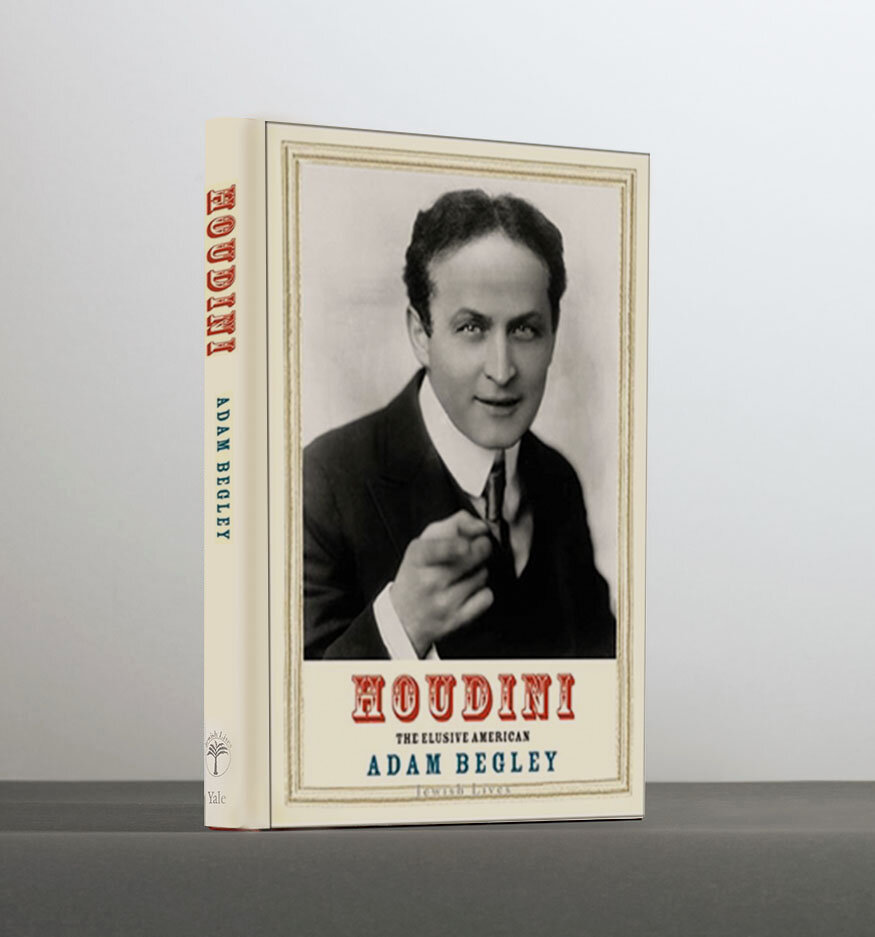
By Adam Begley
Published March 17, 2020
232 pages
“Vivid” —The New Yorker
An exuberant biography of the world’s greatest escape artist
In 1916, the war in Europe having prevented a tour abroad, Harry Houdini wrote a film treatment for a rollicking motion picture. Though the movie was never made, its title, “The Marvelous Adventures of Houdini: The Justly Celebrated Elusive American,” provides a succinct summary of the Master Mystifier’s life.
Born Erik Weisz in Budapest in 1874, Houdini grew up an impoverished Jewish immigrant in the Midwest and became world-famous thanks to talent, industry, and ferocious determination. He concealed as a matter of temperament and professional ethics the secrets of his sensational success. Nobody knows how Houdini performed some of his dazzling, death-defying tricks, and nobody knows, finally, why he felt compelled to punish and imprison himself over and over again. Must a self-liberator also be a self-torturer? Tracking the restless Houdini’s wide-ranging exploits, acclaimed biographer Adam Begley asks the essential question: What kind of man was this?
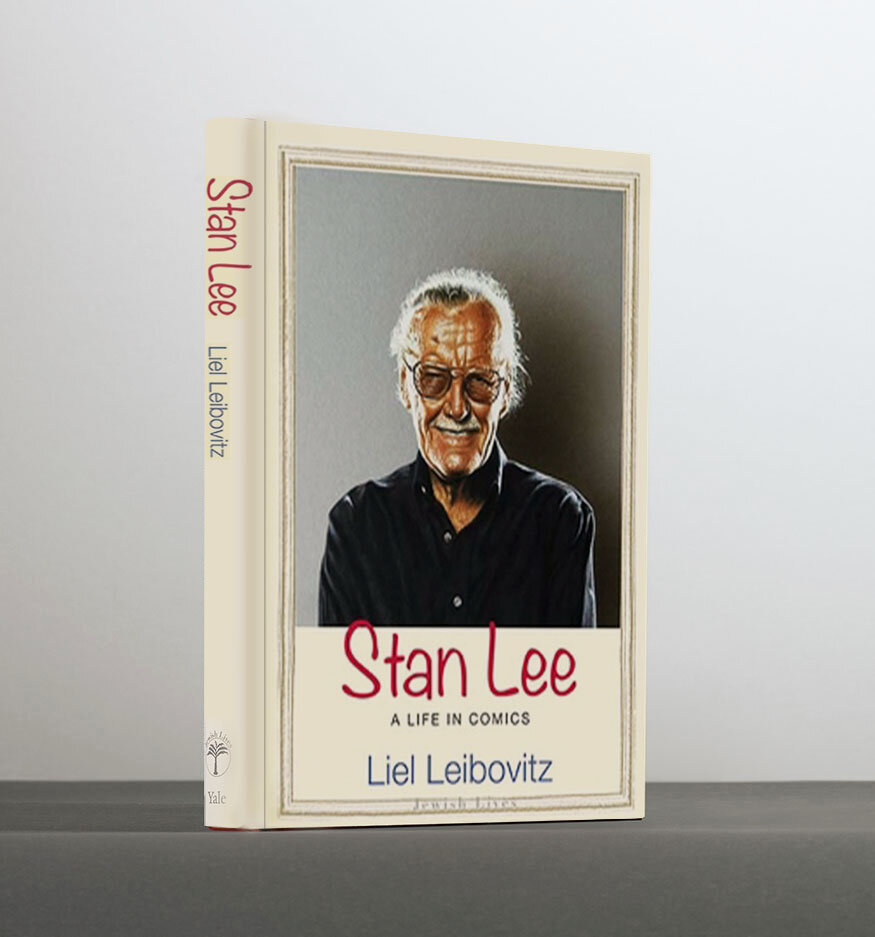
By Liel Leibovitz
Published April 21, 2020
192 pages
“Thoroughly entertaining” —Jeremy Dauber, author of Jewish Comedy: A Serious History
A meditation on the deeply Jewish and surprisingly spiritual roots of Stan Lee and Marvel Comics
Few artists have had as much of an impact on American popular culture as Stan Lee. The characters he created—Spider-Man and Iron Man, the X-Men and the Fantastic Four—occupy Hollywood’s imagination and production schedules, generate billions at the box office, and come as close as anything we have to a shared American mythology.
This illuminating biography focuses as much on Lee’s ideas as it does on his unlikely rise to stardom. It surveys his cultural and religious upbringing and draws surprising connections between celebrated comic book heroes and the ancient tales of the Bible, the Talmud, and Jewish mysticism. Was Spider-Man just a reincarnation of Cain? Is the Incredible Hulk simply Adam by another name? From close readings of Lee’s work to little-known anecdotes from Marvel’s history, the book paints a portrait of Lee that goes much deeper than one of his signature onscreen cameos.
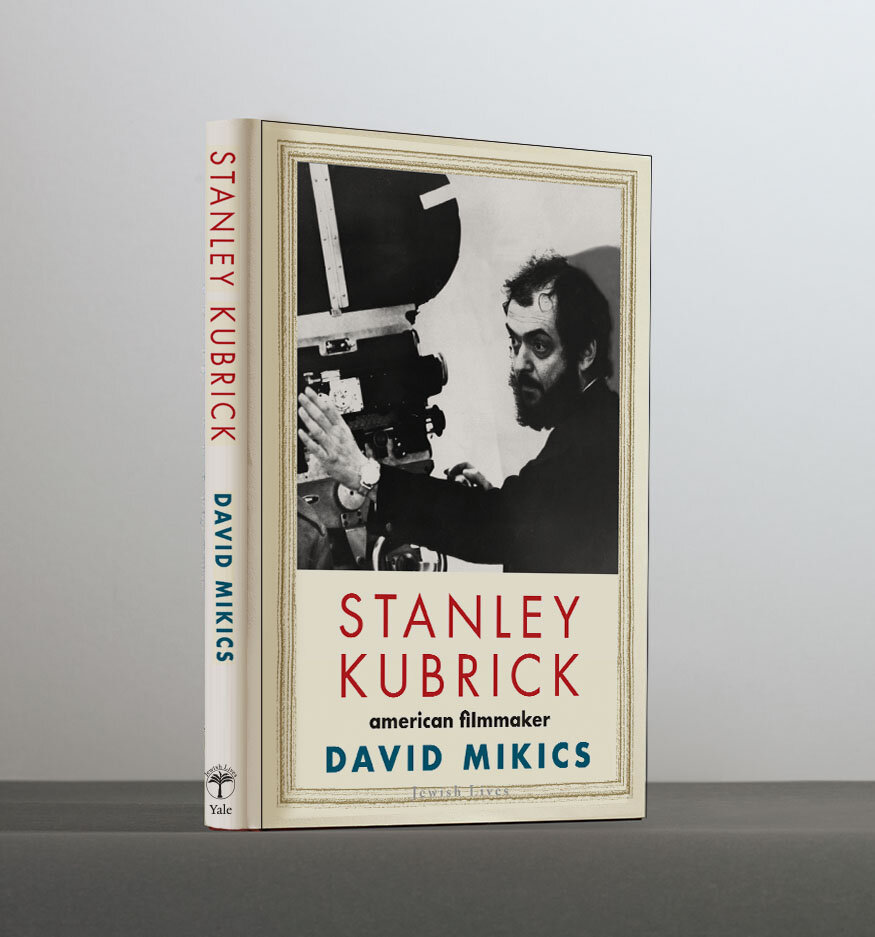
By David Mikics
Published August 18, 2020
248 pages
“A joy to read” —Molly Haskell, author of Steven Spielberg: A Life in Films
An engrossing biography of one of the most influential filmmakers in cinematic history
Kubrick grew up in the Bronx, a doctor’s son. From a young age he was consumed by photography, chess, and, above all else, movies. He was a self-taught filmmaker and self-proclaimed outsider, and his films exist in a unique world of their own outside the Hollywood mainstream. Kubrick’s Jewishness played a crucial role in his idea of himself as an outsider. Obsessed with rebellion against authority, war, and male violence, Kubrick was himself a calm, coolly masterful creator and a talkative, ever-curious polymath immersed in friends and family.
Drawing on interviews and new archival material, Mikics for the first time explores the personal side of Kubrick’s films.

By Jeremy Dauber
Published March 7, 2023
216 pages
“Entertaining and enlightening” —Kenneth Turan, author of Not to Be Missed: Fifty-Four Favorites from a Lifetime of Film
A spirited dive into the life and career of a performer, writer, and director who dominated twentieth-century American comedy
Mel Brooks, born Melvin Kaminsky in Brooklyn in 1926, is one of the great comic voices of the twentieth century. Having won almost every entertainment award there is, Brooks has straddled the line between outsider and insider, obedient and rebellious, throughout his career, making out-of-bounds comedy the American mainstream.
Jeremy Dauber argues that throughout Brooks’s extensive body of work—from Your Show of Shows to Blazing Saddles to Young Frankenstein to Spaceballs—the comedian has seen the most success when he found a balance between his unflagging, subversive, manic energy and the constraints imposed by comedic partners, the Hollywood system, and American cultural mores. Dauber also explores how Brooks’s American Jewish humor went from being solely for niche audiences to an essential part of the American mainstream, paving the way for generations of Jewish (and other) comedians to come.